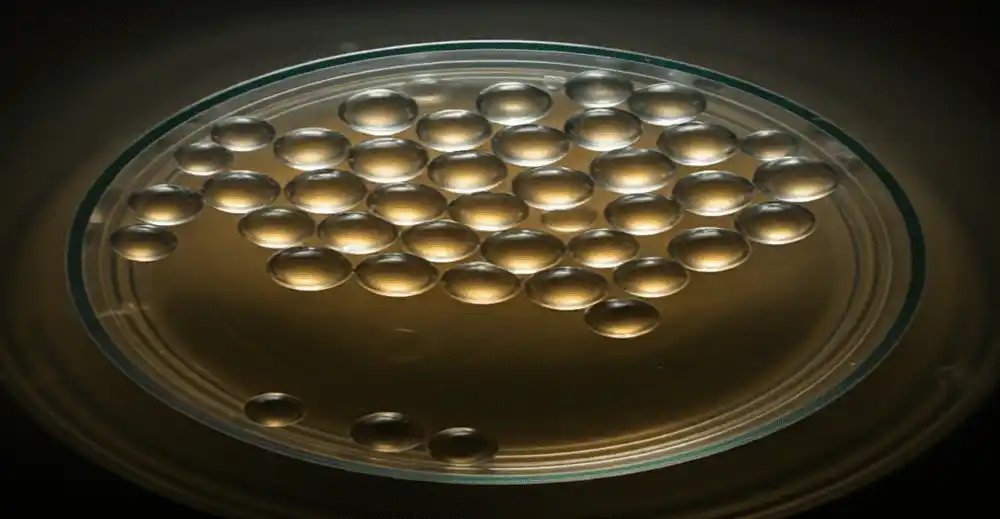Microcarrier Market size worth US$1,905.292 million by 2030

The microcarrier market is projected to grow at a CAGR of 9.32% during the forecast period to reach US$1,905.292 million by 2030, up from US$1,548.099 million in 2025.
The global market for microcarriers has been majorly driven by the growing demand for the cell-based vaccine. According to UNICEF, the delivery of the pentavalent vaccines had been 61.7 million in 2023 and reached 155.1 million in 2024. This sharp increase indicates the demand for whole-cell pertussis vaccine to protect from five diseases in the vaccine. The European Union imported US$ 7,376.031 million worth of vaccines for human medicine in 2023, this is a significant increase from the US$ 6,923.078 million worth of vaccines for human medicine in 2022. This increase in the vaccine demand is due to the growing health concern among the people after the pandemic.
Additionally, the growing demand for alternative medicinal therapies has created a demand for the microcarrier. In October 2024, Cellevate launched the world’s 1st nanofiber microcarrier for gene therapy at CPHI Milan. This technology gives 60 times more surface area for cell growth than conventional systems. Cellevat3d nanofiber microcarriers increase yield and productivity in upstream bioprocessing of gene therapy applications. Cellevat3d nanofiber microcarriers closely mimic the human extracellular environment, providing higher cell densities. Cellevat3d nanofiber microcarriers support a wide range of upstream bioprocessing applications including gene therapy, pluripotent stem cell (PSC) expansion, organoid formation, HEK-based recombinant proteins, and HEK-based vaccine production. Cellevate is a biotech company on proprietary nanofiber technology.
Moreover, one of the emerging trends in application in cell culturing. Microcarriers are finding success in the expanding cell culturing market. In November 2024, Rousselot, and IamFluidics, announced the launch of a novel research-grade dissolvable microcarrier for adherent cell culturing. The product is designed for advanced cell therapies, biologics manufacturing, and cultured meat production. Microcarriers provide a larger surface for cell attachment than traditional flat (2D) cultures and facilitate scaling up from lab-scale to large-scale bioreactors for efficient commercial production.
The new microcarrier offers advantages such as enhanced cell attachment and growth as the denatured collagen promotes cell attachment and growth, rapid dissolution for efficient harvesting (microcarriers dissolve within 15 minutes), high-harvesting efficiency, and easy handling, following standard cell culturing protocols.
Besides, In October 2023, Kuraray Co., Ltd. developed PVA hydrogel microcarriers for cell cultures used in regenerative medicine. The product was launched in January 2024 in Japan and overseas. PVA hydrogel microcarriers were introduced into the bioreactor used for mass cell culture, cells adhere and proliferate on their surface. Microcarriers were resistant to damage when stirred in bioreactors, had been verified for safety, and exhibited cell culture efficiency. The material can be used for three-dimensional culturing by adhering cells on its surface in the culture solution.
By product type, the microcarrier market is segmented into equipment, consumables, reagents, microcarrier beads, and others. The equipment will witness a significant demand in the market due to the growing research and development related to the microcarrier. In June 2023, Teijin Frontier Co., Ltd., announced that it developed new nonwoven microcarriers that enable speedy, large-scale, high-quality cell culture. This scaffolding material can be used for a wide range of cell types and facilitates adherence and growth in three dimensions. In 2024, the company planned to expand marketing of the new nonwoven microcarriers worldwide aiming for global sales of JPY 100 million in fiscal 2026.
By application, the microcarrier market is segmented into biopharmaceutical production, cell and gene therapy, and others. The cell and gene therapy segment application is the upcoming field of application having a notable growth rate.
By end-users, the microcarrier market is segmented into pharmaceuticals & biotechnology companies, research institutes, and contract research organizations. The pharmaceuticals & biotechnology companies are likely to have a significant share as the companies are investing in huge for the development of new products and solutions.
Based on geography, the European region of the microcarrier market will have a significant share. The major countries in the region included the United Kingdom, Germany, France, and Spain. In Germany, denovoMATRIX GmbH launched beadMATRIX for MSCs I Microcarrier for MSCs in May 2022. These developments have played a key role in the advancement of the market.
As a part of the report, the major players operating in the microcarrier market that have been covered are Thermo Fisher Scientific, Merck KGaA, Entegris, Batavia Biosciences B.V., Sartorius AG, and Nucleus Biologics, LLC.
View a sample of the report or purchase the complete study at: https://www.knowledge-sourcing.com/report/global-microcarrier-market
The market analytics report segments the microcarrier market as follows:- By Product Type
- Equipment
- Consumables
- Reagents
- Microcarrier Beads
- Others
- By Application
- Biopharmaceutical Production
- Cell and gene therapy
- Others
- By End-Users
- Pharmaceuticals & Biotechnology Companies
- Research Institutes
- Contract Research Organizations
- By Geography
- North America
- USA
- Canada
- Mexico
- South America
- Brazil
- Argentina
- Others
- Europe
- United Kingdom
- Germany
- France
- Spain
- Others
- Middle East and Africa
- Saudi Arabia
- UAE
- Israel
- Others
- Asia Pacific
- China
- India
- Japan
- South Korea
- Indonesia
- Others
- North America
- Point-Of-Care Genetic Testing Market Size
- Epigenetic Diagnostics Market Report
- Global Biologics Market Size
Get in Touch
Interested in this topic? Contact our analysts for more details.
Latest Press Releases

Pain Management Drugs Market expected to reach USD 116.412 billion by 2030
Recently
Organic Acids Market expected to reach USD 21.582 billion by 2030
Recently
Enterprise Artificial Intelligence (AI) Market expected to reach USD 83.850 billion by 2030
Recently
Non-Woven Adhesive Tape Market expected to reach USD 3,124.230 million by 2030
Recently